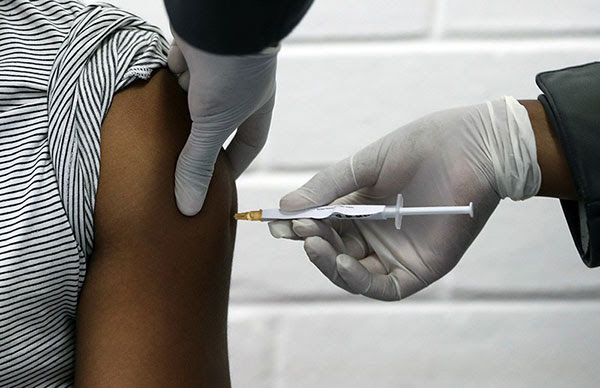
The University of Oxford’s candidate vaccine against COVID-19 is being tested in South Africa, the United Kingdom and Brazil. (Siphiwe Sibeko/AFP via Getty)
Inside the four vaccine front-runners
A flood of data from the first human coronavirus-vaccine trials have revealed four promising candidates. All work by exposing the immune system to the virus’s spike protein, in hopes of provoking a reaction against a real infection in the future.- A ‘viral vector’ vaccine from the University of Oxford and AstraZeneca in the United Kingdom. It harnesses a genetically modified adenovirus that causes colds in chimpanzees that expresses the coronavirus spike protein.
- A similar approach from CanSino Biologics in China, which uses a modified human adenovirus instead.
- An RNA-based vaccine from Pfizer and German company BioNTech. It relies on messenger RNA that synthesizes a crucial part of the coronavirus called the receptor-binding domain.
- Another RNA vaccine from US company Moderna in collaboration with the US National Institute of Allergy and Infectious Disease.
Nature | 6 min read





















.png)












No hay comentarios:
Publicar un comentario